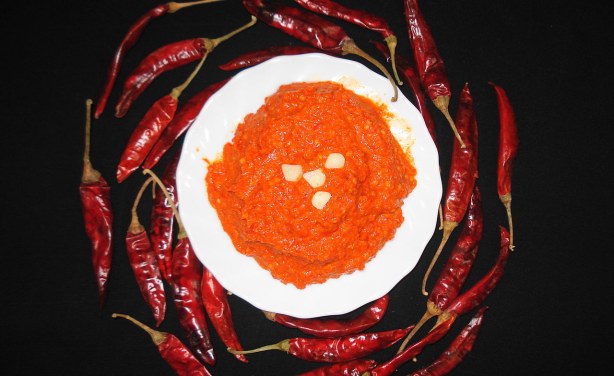-
Africa: Africa's Harissa, Raï and Kalela Win UNESCO Heritage Status
RFI, 4 December 2022
Spicy harissa paste from Tunisia, Morocco's raï music and Kalela dance from Zambia were selected on Thursday to join Unesco's intangible cultural heritage list. Read more »
-
Tunisia: Tunisia's Spicy Sauce Harissa Enters Unesco Cultural Heritage List
Independent (Kampala), 4 December 2022
Tunisia's spicy sauce harissa was added on Thursday to the intangible cultural heritage list of the United Nations Educational, Scientific, and Cultural Organization (UNESCO). Read more »
-
Tunis Afrique Presse, 14 January 2021
A special day was organised Wednesday afternoon at the Chedli Klibi City of Culture by the Ministry of Cultural Affairs to celebrate the official inscription of "the knowledge,… Read more »
Africa's Harissa, Raï and Kalela Get UNESCO Heritage Status
Spicy harissa paste from Tunisia, Morocco's Raï music, and Kalela dance from Zambia were selected to join United Nations Educational, Scientific, and Cultural Organization (UNESCO's) intangible cultural heritage list.
The agency met in the Moroccan capital Rabat, to examine proposals for its List of Intangible Cultural Heritage, which aims to protect cultural traditions, practices, and knowledge. There was no debate over whether to include Tunisia's harissa - a paste made with sun-dried hot peppers, spices and olive oil, found in almost every restaurant in Tunisia and exported worldwide.
The debates were longer for Kalela, a traditional dance that originated during colonial times in the Luapula Province of Zambia. Unesco website reports that the dance "was adopted by mine workers and used for entertainment at the chief's palace during traditional ceremonies, funerals, harvest celebrations, and other important occasions."
The last dossier from an African state concerned Raï - a popular form of a song from Algeria. Like harissa, it got through without debate. Raï, whose biggest stars include Cheb Khaled and Cheb Mami, emerged in the closing decades of French colonial rule in Algeria, confronting social taboos and dealing with themes such as love, freedom, despair, and the struggle against social pressures.
InFocus
-
The United Nations Educational, Scientific and Cultural Organization (Unesco) has warned that plans by the governments of Zimbabwe and Zambia for the development of a golf course, ... Read more »



